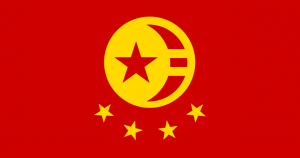Language/Yue-chinese/Grammar/Possessive-Pronouns
| ◀️ Personal Pronouns — Previous Lesson | Next Lesson — Family Members ▶️ |
Welcome to another exciting lesson in our "Complete 0 to A1 Yue Chinese Course"! Today, we will dive into the essential topic of possessive pronouns in Yue Chinese. Understanding how to express possession is crucial as it allows you to communicate more effectively about ownership, relationships, and personal connections.
In this lesson, we will cover the following key points:
- What are possessive pronouns?
- The forms of possessive pronouns in Yue Chinese.
- Examples of possessive pronouns in sentences.
- Exercises to practice what you’ve learned.
By the end of this lesson, you should feel confident using possessive pronouns in your conversations. Let’s get started!
What Are Possessive Pronouns?[edit | edit source]
Possessive pronouns are words that show ownership or belonging. In English, we have pronouns like "my," "your," "his," "her," "our," and "their." Similarly, Yue Chinese has its own set of possessive pronouns that serve the same purpose.
Here’s a quick overview of the possessive pronouns in Yue Chinese:
- My - 我嘅 (ngo5 ge3)
- Your - 你嘅 (nei5 ge3)
- His - 佢嘅 (keoi5 ge3)
Her - 佢嘅 (keoi5 ge3) (Note: Both "his" and "her" use the same term)*
- Our - 我哋嘅 (ngo5 dei6 ge3)
- Their - 佢哋嘅 (keoi5 dei6 ge3)
Forms of Possessive Pronouns in Yue Chinese[edit | edit source]
In Yue Chinese, possessive pronouns are formed by taking the personal pronoun and adding the particle 嘅 (ge3) to indicate possession.
Here's how it works:
- 我 (ngo5) means "I" or "me," and 我嘅 (ngo5 ge3) means "my."
- 你 (nei5) means "you," and 你嘅 (nei5 ge3) means "your."
- 佢 (keoi5) means "he/she," and 佢嘅 (keoi5 ge3) means "his/her."
- 我哋 (ngo5 dei6) means "we," and 我哋嘅 (ngo5 dei6 ge3) means "our."
- 佢哋 (keoi5 dei6) means "they," and 佢哋嘅 (keoi5 dei6 ge3) means "their."
Example Sentences[edit | edit source]
Now, let’s look at some examples to illustrate how these possessive pronouns are used in sentences.
Here’s a comprehensive table of examples:
| Yue Chinese | Pronunciation | English |
|---|---|---|
| 我嘅書 | ngo5 ge3 syu1 | My book |
| 你嘅手機 | nei5 ge3 sau2 gei1 | Your phone |
| 佢嘅狗 | keoi5 ge3 gau2 | His dog |
| 佢嘅貓 | keoi5 ge3 maau1 | Her cat |
| 我哋嘅家 | ngo5 dei6 ge3 gaa1 | Our home |
| 佢哋嘅車 | keoi5 dei6 ge3 ce1 | Their car |
| 我嘅朋友 | ngo5 ge3 pang4 jau5 | My friend |
| 你嘅工作 | nei5 ge3 gung1 zok3 | Your work |
| 佢嘅學校 | keoi5 ge3 hok6 haau6 | His school |
| 佢嘅衣服 | keoi5 ge3 ji1 fuk6 | Her clothes |
| 我哋嘅計劃 | ngo5 dei6 ge3 gai3 waak6 | Our plan |
| 佢哋嘅食物 | keoi5 dei6 ge3 sik6 mat6 | Their food |
| 我嘅相片 | ngo5 ge3 soeng1 pin3 | My photo |
| 你嘅故事 | nei5 ge3 gu3 si6 | Your story |
| 佢嘅電話 | keoi5 ge3 din6 wa2 | His phone |
| 佢嘅花 | keoi5 ge3 faa1 | Her flower |
| 我哋嘅運動 | ngo5 dei6 ge3 wan6 dung6 | Our exercise |
| 佢哋嘅電視 | keoi5 dei6 ge3 din6 si6 | Their television |
| 我嘅學習 | ngo5 ge3 hok6 zaap6 | My study |
| 你嘅運動鞋 | nei5 ge3 wan6 dung6 haai4 | Your sneakers |
Practice Exercises[edit | edit source]
To help reinforce what you’ve learned, here are some exercises. Try to fill in the blanks with the correct possessive pronoun.
Exercise 1: Fill in the Blanks[edit | edit source]
1. _____ 書 (My book) - _______
2. _____ 電話 (Your phone) - _______
3. _____ 貓 (Her cat) - _______
4. _____ 車 (Their car) - _______
5. _____ 工作 (His work) - _______
Exercise 2: Translate the Sentences[edit | edit source]
Translate the following English sentences into Yue Chinese using the correct possessive pronouns:
1. Our friend is nice.
2. My sister is at school.
3. Your dog is cute.
4. Their house is big.
5. His phone is new.
Exercise 3: Matching[edit | edit source]
Match the English possessive pronouns with their Yue Chinese counterparts:
1. My - _______
2. Your - _______
3. His - _______
4. Our - _______
5. Their - _______
Solutions[edit | edit source]
Now, let's take a look at the solutions for these exercises.
Exercise 1 Solutions =[edit | edit source]
1. 我嘅書 (ngo5 ge3 syu1)
2. 你嘅電話 (nei5 ge3 din6 wa2)
3. 佢嘅貓 (keoi5 ge3 maau1)
4. 佢哋嘅車 (keoi5 dei6 ge3 ce1)
5. 佢嘅工作 (keoi5 ge3 gung1 zok3)
Exercise 2 Solutions =[edit | edit source]
1. 我哋嘅朋友好好 (ngo5 dei6 ge3 pang4 jau5 hou2)
2. 我嘅妹妹喺學校 (ngo5 ge3 mui6 mui2 hai2 hok6 haau6)
3. 你嘅狗好可愛 (nei5 ge3 gau2 hou2 ho2 oi3)
4. 佢哋嘅屋企好大 (keoi5 dei6 ge3 uk1 kei2 hou2 daai6)
5. 佢嘅電話係新嘅 (keoi5 ge3 din6 wa2 hai6 san1 ge3)
Exercise 3 Solutions =[edit | edit source]
1. My - 我嘅 (ngo5 ge3)
2. Your - 你嘅 (nei5 ge3)
3. His - 佢嘅 (keoi5 ge3)
4. Our - 我哋嘅 (ngo5 dei6 ge3)
5. Their - 佢哋嘅 (keoi5 dei6 ge3)
Congratulations on completing this lesson on possessive pronouns in Yue Chinese! Remember, practice makes perfect, so try using these pronouns in your daily conversations. Don't hesitate to reach out with any questions or for further clarification. Keep up the good work, and see you in the next lesson!
Other Lessons[edit | edit source]
- Present Tense
- Expressing Comparison
- How to Use Be
- Expressing the Best and the Worst
- Subject Verb Object
- Connecting Ideas
- Future Tense
- Give your Opinion
- Verb Tense
- Hello and Goodbye
| ◀️ Personal Pronouns — Previous Lesson | Next Lesson — Family Members ▶️ |

